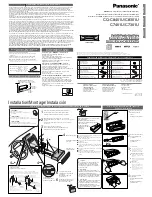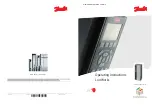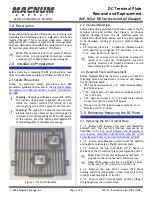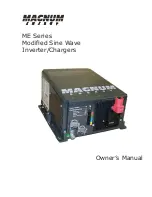
Trends UD-10.1/UD-10 Lite User Guide
Section 8. Hints & Tips / Section 9. Troubleshooting / Section 10. Contact Us
11
8. Hints & Tips
-
Always power the Trends UD-10.1 USB Audio Converter before starting
your media player.
-
It’s impossible to advise on the suitability of every media player, operating
system, file type combinations, so for best results experiment
-
Use battery power for a more open and spacious sound
9. Troubleshooting
Symptom
Solution
No power
Check battery pack is not flat & is
switched on.
No sound
Check USB cable is connected
Restart your media player
Sound is intermittent
Check battery pack it may need
charging. Restart your media player
No Sound & No power
Check USB cable - battery pack
- power supply
Volume very low
Check PC/Mac/Smartphone master volume &
media players volume setting
10. Contact
ITOK Technologies Limited (Trends Audio)
Address : Rm. K, 11/F, Kwun Tong Industrial Centre, Phase 1
472-484 Kwun Tong Road, Kowloon, Hong Kong
Tel
: (852) 2304 0730 (9am-6pm, HKG Time)
Fax
: (852) 2566-5740
: [email protected] (Sales)
[email protected] (Support)
Web
: http://www.TrendsAudio.com
Trends UD-10.1/UD-10 Lite User Guide
Section 11. Regulatory Compliance
12
11. Regulatory Compliance
This device complies with Part 15 of the FCC Rules. Operation is subject to the
following two conditions:
(1) this device may not cause harmful interference, and
(2) this device must accept any interference received, including interference
that may cause undesired operation.
Warning: Changes or modifications to this unit not expressly approved by the
party responsible for compliance could void the user's authority to operate the
equipment.
NOTE: This equipment has been tested and found to comply with the limits for
a Class B digital device, pursuant to Part 15 of the FCC Rules. These limits are
designed to provide reasonable protection against harmful interference in a
residential installation. This equipment generates, uses and can radiate radio
frequency energy and, if not installed and used in accordance with the
instructions, may cause harmful interference to radio communications.
However, there is no guarantee that interference will not occur in a particular
installation. If this equipment does cause harmful interference to radio or
television reception, which can be determined by turning the equipment off and
on, the user is encouraged to try to correct the interference by one or more of the
following measures:
l
Reorient or relocate the receiving antenna.
l
Increase the separation between the equipment and receiver.
l
Connect the equipment into an outlet on a circuit different from that to which
the receiver is connected.
l
Consult the dealer or an experienced radio/TV technician for help.
























